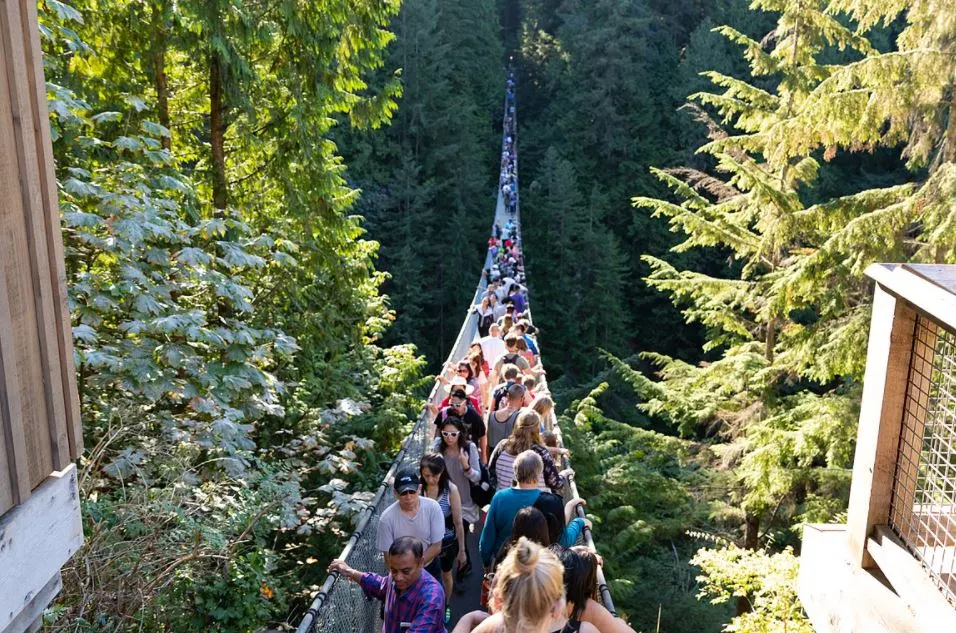One of the most amazing suspension bridges in the world can be found just north of Vancouver, the largest city in the province of British Columbia in Canada.
In this article, you’ll discover the most interesting facts about the Capilano Suspension Bridge, a fascinating bridge with an intriguing history.
1. It’s located in the district of North Vancouver
The Capilano Bridge is a suspension bridge in Canada that is located in the district of North Vancouver. As you surely expected, this district is located just north of Downtown Vancouver.
This district is part of the Greater Vancouver metropolitan area which is the third-most populous metro in Canada after Toronto and Montreal.
The bridge can be found in the northwestern part of North Vancouver in a relatively hilly area.

2. It crosses the river after which it was named
The bridge crosses a major river in the Vancouver area known as the Capilano River. This river flows through the Coast Mountains in between West and North Vancouver.
This river is extremely important for the city because it supplies most of the city’s greater metropolitan with drinking water. The Cleveland Dam, an amazing dam that stands 91 meters (299 feet) high, was built to provide a reservoir for this purpose in the early 1950s.
The final part of the river, before it releases into the Burrard Inlet, flows through steep canyons. This is the location where the Capilano Bridge was built.
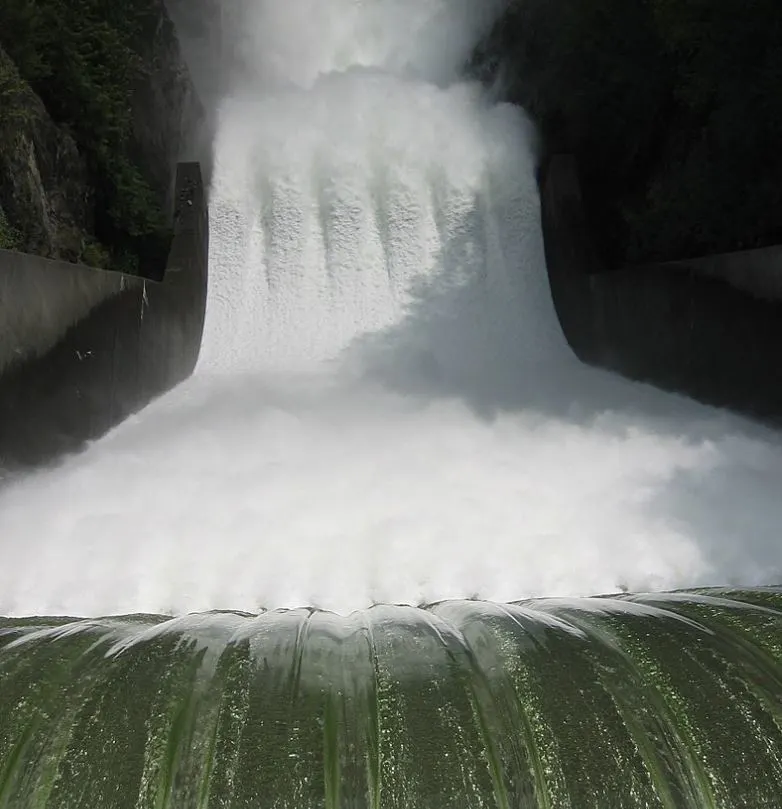
3. The original bridge was designed by a Scottish engineer in 1889
The history of the bridge dates way back to the late 19th century. The original version of the bridge was designed by a Scottish civil engineer named George Grant Mackay.

Even though it was located in the same location as the suspension bridge today, this version was made of hemp ropes and cedarwood planks that served as the deck.
The original bridge was replaced with the first version of a wire cable suspension bridge in the year 1903 and changed hands a couple of times in the following decades.
The current version of the bridge dates back to the year 1956. The current owner of the bridge, a local female entrepreneur named Nancy Stibbard who owns multiple entertainment facilities in the area, bought the bridge in 1983.
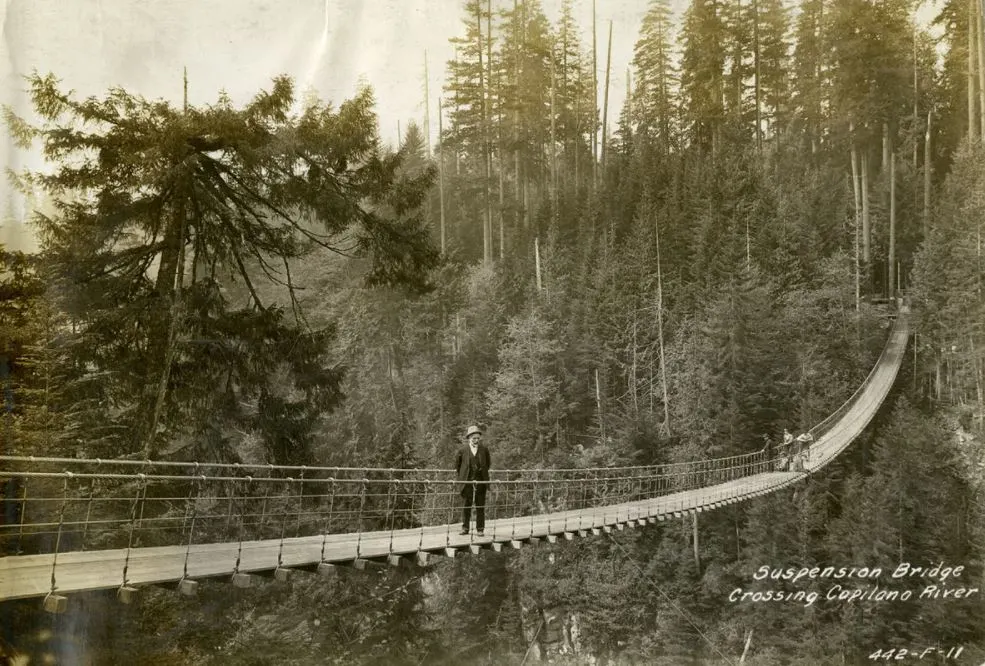
4. How long is the Capilano Suspension Bridge?
This isn’t a huge bridge as it only has a length of about 140 meters (460 feet) as it crosses the river from one cliff to the other.
What makes this attraction so fascinating is that the river is situated about 70 meters (230 feet) below the bridge’s deck.
As you surely expected, this is a pedestrian-only bridge and always has been.
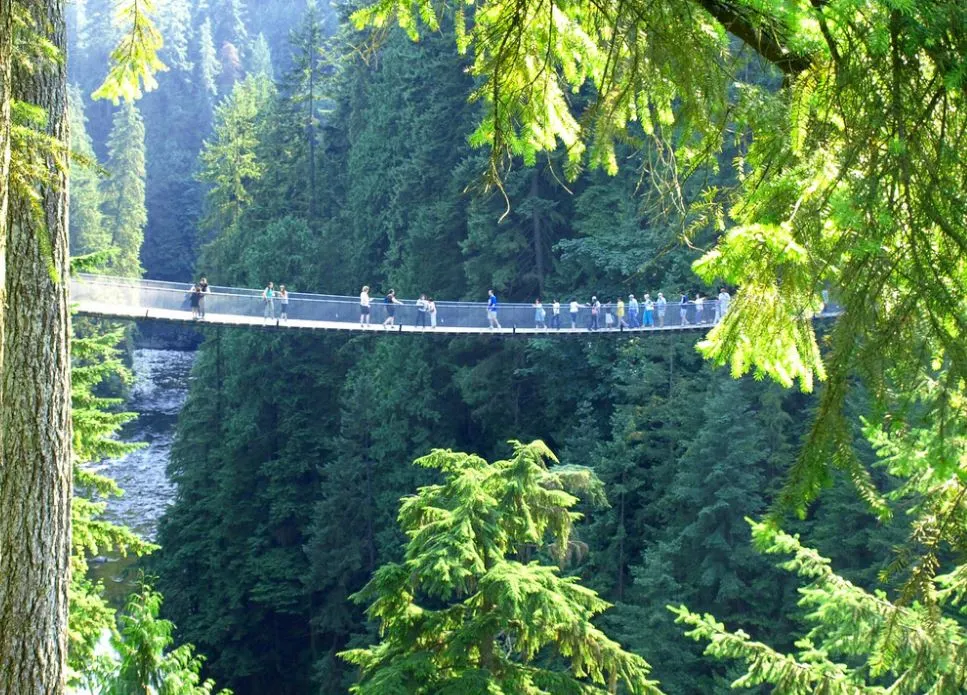
5. The bridge is a very popular tourist attraction in the region
The bridge is the main attraction of a park known as the “Capilano Bridge Suspension Park,” a tourist spot that features multiple attractions.
The two most fascinating attractions of this park apart from the suspension bridge are:
- Treetops Adventures – This attraction allows you to walk on top of the forest canopy across 7 footbridges suspended between old-growth Douglas fir trees. These bridges are located at an elevation of up to 30 meters (98 feet) above the ground.
- Cliff walk – A collection of bridges, stairs, and platforms, attached to 16 anchor points in the cliff near the Capilano River.
The other main focus of the park is to provide education about the temperate West Coast rainforest in which the bridge is located.
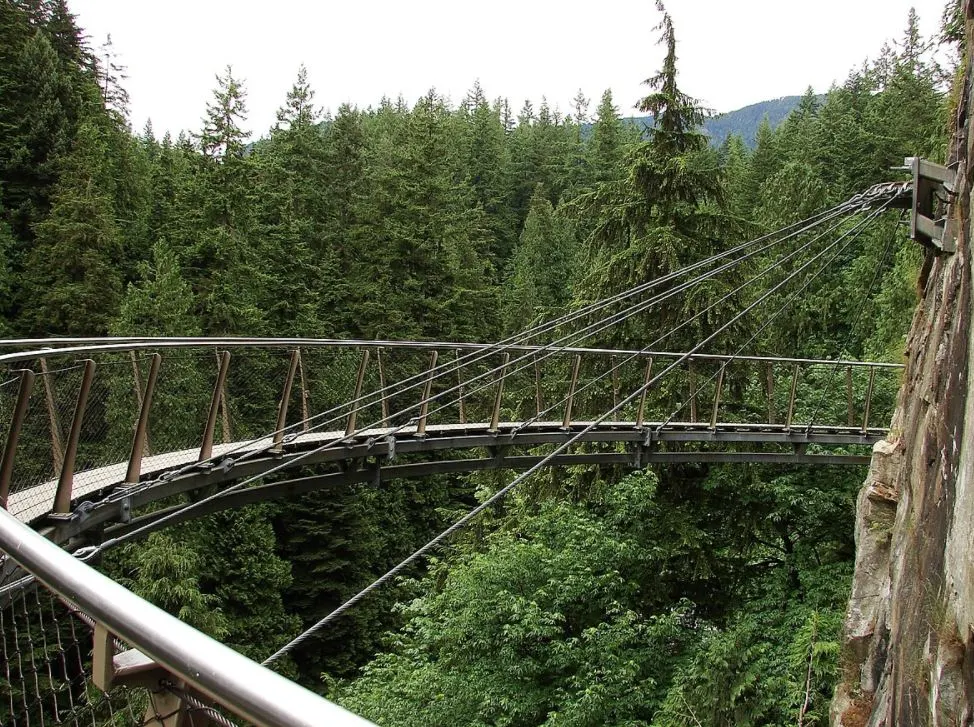
More interesting facts about the Capilano Suspension Bridge
6. The name “Capilano” is the anglicized version of the indigenous word “Kia’palano.” In the language of the Squamish Nation, this means “Beautiful River.”
Kia’palano was also the name of a great Squamish chief who lived here in the early 19th century. The last chief to be named “Chief Capilano” died in the year 1870.
7. The original bridge was created by letting horses pull hemp ropes from one side of the canyon to the other. The anchors of the bridge were huge huge cedar logs that were buried to provide stability.
This was all possible because the original owner of the bridge, Scottish civil engineer George Grant Mackay, had bought 6,000 acres of land on both sides of the canyon.
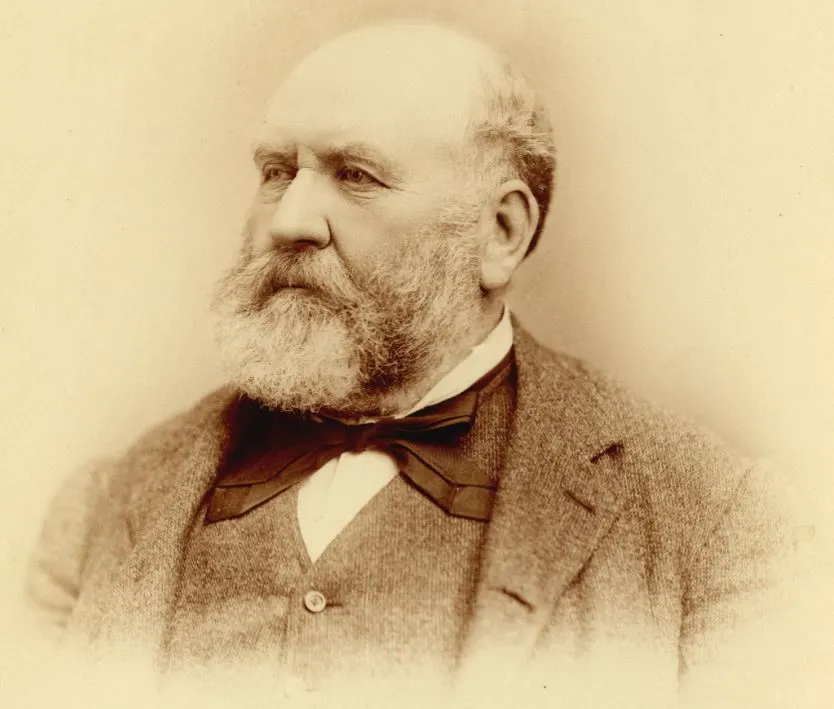
8. The history of the bridge during the 20th century is quite fascinating, mainly because it changed hands multiple times. The cable wire suspension bridge that was completed in 1903 was bought by Edward Mahon (1862-1937), an Engish-born entrepreneur and real estate developer.
He ended up selling the bridge shortly before he passed away in 1935 to “Mac” MacEachran. This was the time that Native Americans placed totem poles inside the park.
The bridge was sold yet again to Henri Aubeneau in 1945, who in turn sold it to Rae Mitchell in 1953. Just 3 years later, Mitchell completely renovated the bridge in just 5 days by encasing the cables in 13 tonnes of concrete on both sides.
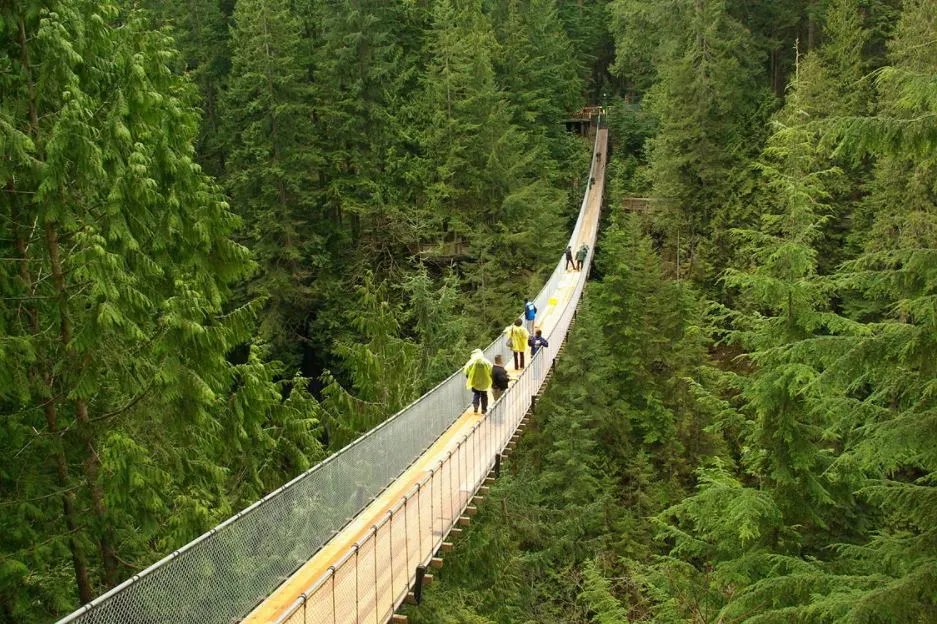
9. The current owner of the bridge, Nancy Stibbard, is actually the daughter of Rae Mitchell. This means that she purchased the bridge from her father in 1983.
She’s clearly an entrepreneur by heart because she also owns the Moraine Lake Lodge in Banff National Park, Alberta, and the Cathedral Mountain Lodge in Yoho National Park, British Columbia.
10. Multiple additions have been made to the Capilano Suspension Bridge Park, including the addition of multiple attractions and educational facilities. This has resulted in the visitor count booming over the last couple of decades.
An estimated 1.2 million tourists visit the park every year, an astounding figure that makes it one of the most popular tourist attractions in Metro Vancouver!
